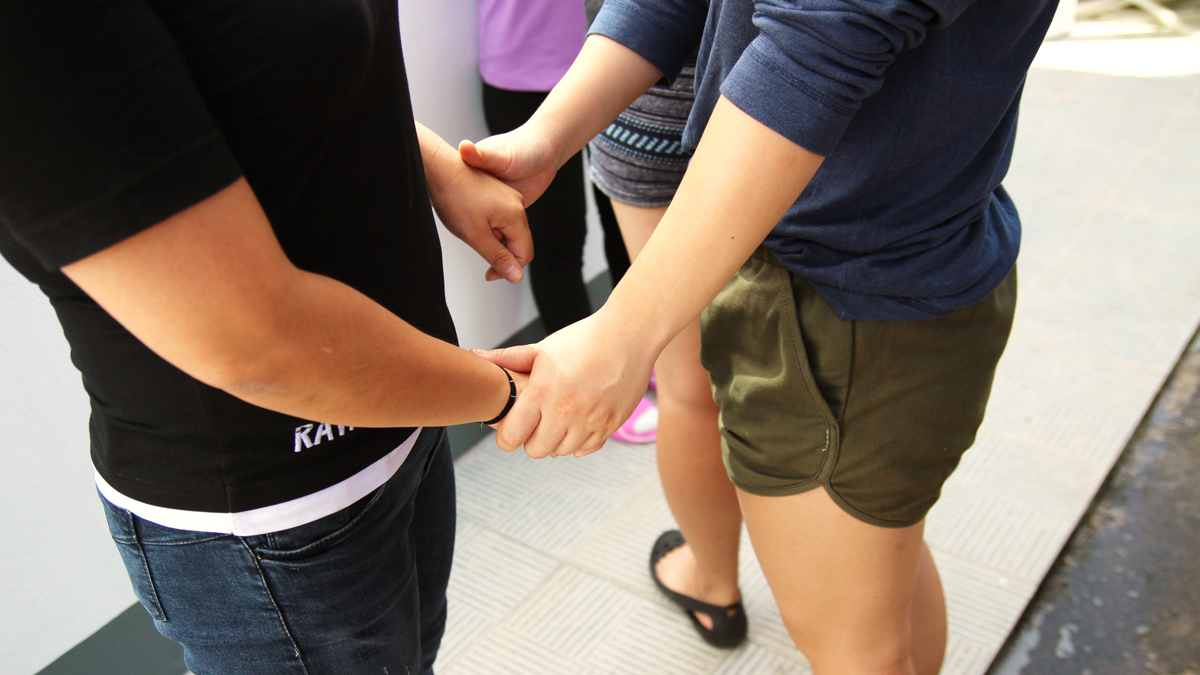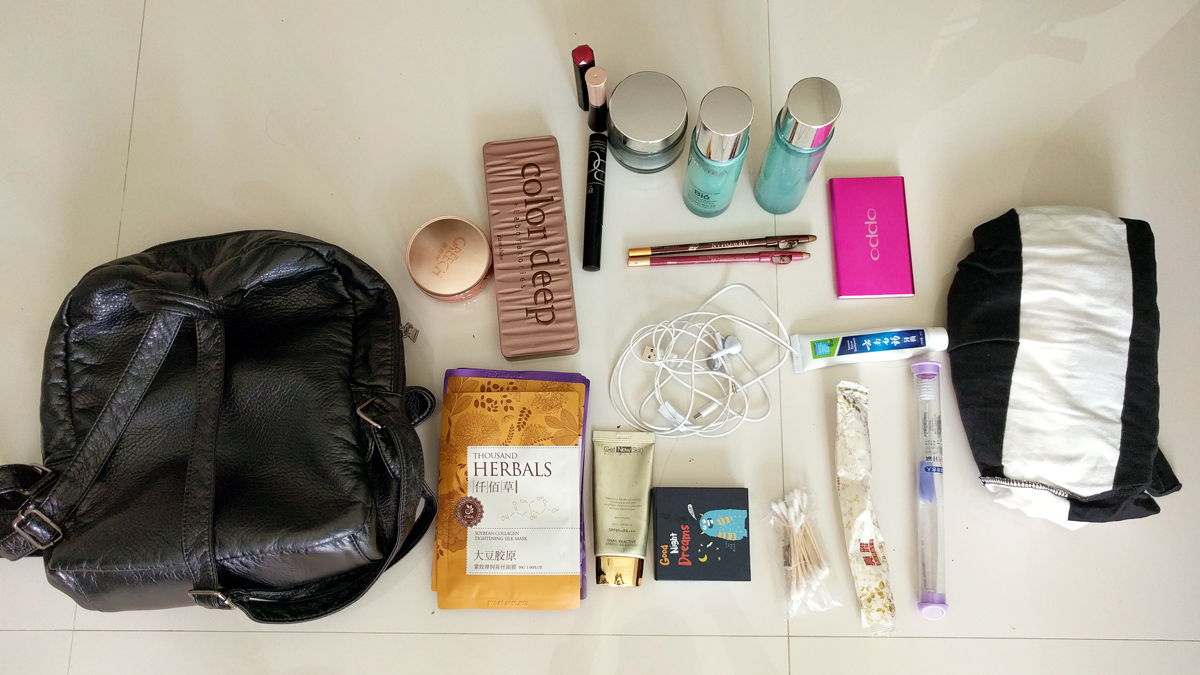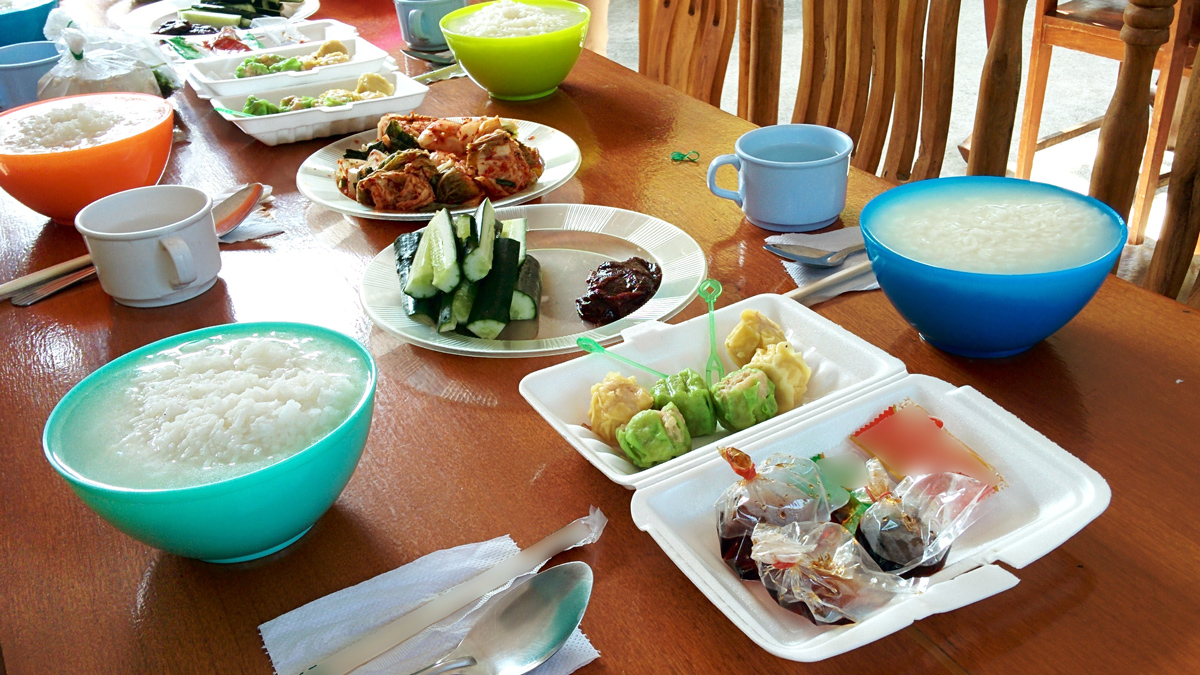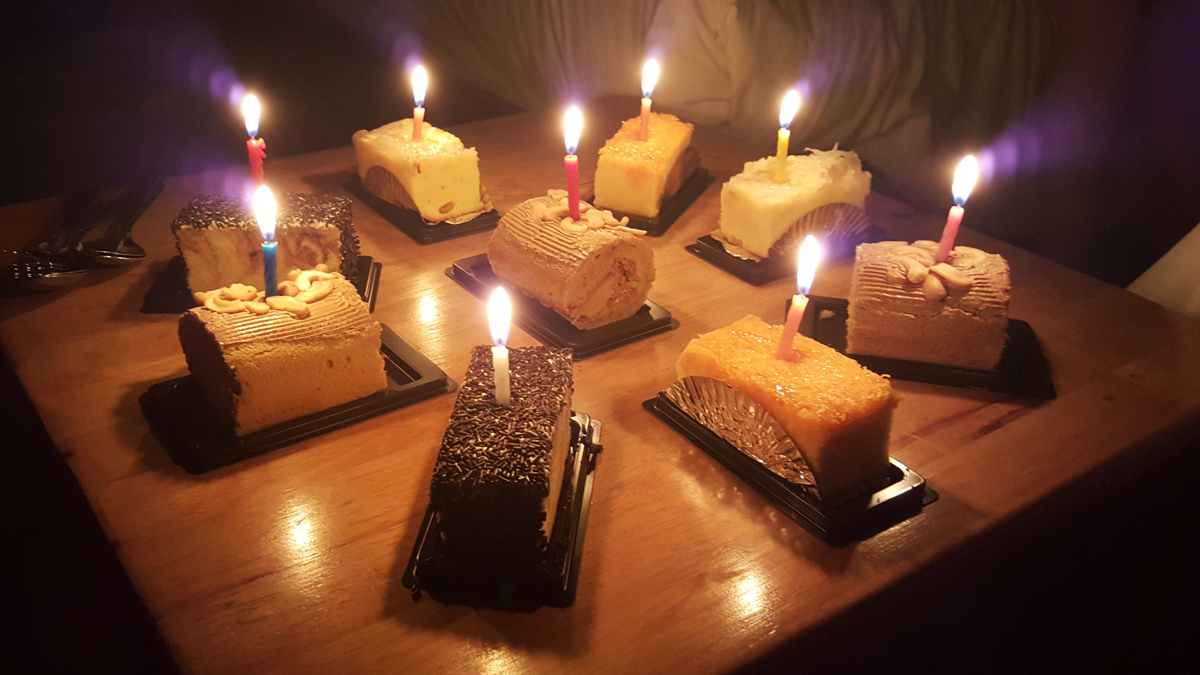Yoon Ha's Story: Part 1 - Life in North Korea

Yoon Ha resettled to South Korea through LiNK’s network about a year ago. She recently shared her story with us. This is part one of three. Continue to part two.
When I was asked, “How was your life in North Korea?” for the first time, I just started crying because my life there was so hard. It was so hard.
When I was a little kid my mom left me, my younger sister, and my dad, because of our financial struggles. I felt so abandoned and unloved.
And even though I was young, I had to start working to contribute to my family’s finances. My sister and I would forage for plants in the mountains and riversides. We carried the herbs, roots, and pinecones on our backs, walking for three hours to get to the marketplace. We sold our stuff so we could get corn powder to eat. And then we would walk the three hours back to our house. It was very, very hard.
In my late teens my father passed away. I was devastated. After a few years of living with relatives, my sister and I moved back to live with our mom again. But we were still very poor. People would make fun of us for being so poor and not having a father around. I felt a lot of shame about my family and living situation.
When I was 22, my mom asked me to start living with a man much older than me to lessen the financial burden on my family. I didn’t like living with him at all.
I decided to leave my hometown to find a better life somewhere else. I walked for a few days to get to Hamhung, one of the biggest cities in North Korea, hoping I could find work there.

In the city, I did a lot of things to make money. I would sell gas lighters and secondhand vinyl. I had to do it secretly because it was illegal. And it never paid well--just enough to buy food. I was staying at homes, cheap inns, empty houses, and even sleeping on the streets and next to graves when I had to. Sometimes I got beaten by people from the city because they didn’t like that I was making money but wasn’t from there.
I worked there for many months, but I couldn’t save any money so I decided to go back to my mom’s place. My mom and my sister were still struggling, and having me back was a burden to them. So I left home again and walked to Pyongyang to find work. In North Korea you need a special permit to move to different cities, and I didn’t have one. I got caught and sent to jail for 10 days.
After I was released, I started walking to other cities again to find work. I knew I might get caught by the police again, but I couldn’t go home. I walked a lot. Walking was the only way I could travel to where I needed to go.
I made it to another town and found work crushing ore to extract gold. The work was illegal and we would do it secretly in people’s houses. In one of these houses, I got beat up and got kicked out. I didn’t do anything wrong; they just didn’t want to pay me. Even after that incident I continued to do the same work in other houses. For the first time in my life, I had made a decent amount of money--enough to buy 100 kg of corn.
I was so happy. I would be able to bring some money to my mom and sister so we could eat food for a while. I also missed my family, so I started heading home.

At a bus station on the way home, a woman and her daughters asked me to get water for them. They stole all of my money and ran away.
I couldn’t handle all the bad things that kept happening to me. It felt like my life was hopeless and pathetic. I went to a river near the bus station to commit suicide. But right when I was about to jump into the river, all of sudden a thought came over me.
“Why do I have to die? Why? I've not done anything wrong. I'm still only in my early 20s.” I made the decision to live and make the better life I wanted.
Instead of going home, I started walking again. I just kept going north. Even though I was so hungry, the hope for a better life drove me to keep walking.
After walking for days, I somehow arrived in Hyesan, a city on the border with China. I saw many people like me, who had been wandering around in search of food and work. I had travelled to many different parts of North Korea, and came to the conclusion that life was difficult everywhere in my country.
A couple in their 30s or 40s approached me and asked how old I was. I told them my age, 23. They asked if I wanted to go to China. They said I could have a better life there.
“A better life? Yeah, I would do anything to have a better life.”
So I decided to go to China with them. I was so focused on having a better life; I didn’t ask many questions. A few days later, in the darkness of night, we crossed the river into China.
Continue reading with part two.
Women’s History Month: Honoring the Bravery of North Korean Women
By: Jennifer Kim
Jennifer* is Liberty in North Korea’s Field Manager. Over the years, she’s carefully stewarded our secret rescue routes and helped countless North Korean refugees reach safety and freedom.
Approximately 70% of North Korean defectors are women. Throughout their journey, they face unimaginable challenges, including human trafficking, confinement, and sexual violence.
For Women’s History Month this year, we asked Jennifer to share her experiences supporting North Korean women who have made the brave decision to escape, and bring light to the stories of real people behind the numbers and statistics.

A Transformative First Mission
When I first began this line of work, I was filled with both excitement and anxiety. “Will I be able to connect well with these people?” “Will the field be too dangerous?” Even in my position as a staff member, there were times when the situations we encountered felt riskier because I was a woman.
On my first mission, the group we brought to safety were all women. From their small requests, like asking for sanitary pads, to moments where they cautiously shared their harrowing experiences of human trafficking in China, I found that we could connect on a deeper level because I was also a woman. I realized my role wasn’t just to be a staff member, but to stand by these people as they needed me, as a fellow woman. From then on, the fear I had initially felt about this work transformed into conviction.
North Korean Women At the Forefront of Resistance and Survival
After meeting many North Korean women defectors, I’ve come to learn that there are unique challenges and experiences that only they face. Women in North Korea are not as restricted to job assignments as men, so they’re the ones actively engaged in informal economic activities. They’re running their own black-market businesses and trading smuggled goods, shifting economic power from the regime into the hands of the ordinary people.
Women also make up the majority of North Korean defectors at over 70%. In freedom, they’re leading advocacy efforts and raising awareness for this issue.
I've come to think that perhaps women in North Korean society were the first and most desperate to stand up in resistance.

At the same time, the reality is that women are more vulnerable to gender violence and crime. The moment they cross the North Korean border and set foot on Chinese soil, their precarious legal status and the fact that they are women become risk factors that can lead to human trafficking, sexual exploitation, and forced prostitution. If these dangerous situations lead to pregnancy and childbirth, women often remain in China for years, even decades, weighed down by the conflicting emotions of their longing for freedom and their maternal instincts.
All of the women I met during my first rescue mission were survivors of being trafficked into forced marriages. While there are some cases where these women meet kind families and live in a relatively less dangerous environment, most have to endure difficult lives. One woman who we rescued in 2024 said that in the early stages of her life in China, she was confined and tied up in a single room by the man who bought her. Others had to do forced labor in one of China’s many factories.
Not a News Story, But a Person’s Story
About ten years ago, I watched a video of a woman my age testifying about the hardships and sexual violence she experienced during her defection from North Korea. As a South Korean, I couldn't believe that such things were happening just across the border. Shocked and ashamed of my indifference, I cried for a long time, then resolved to do something.
North Korea used to be something I only saw and heard about through a TV screen. Now those distant news stories have become the personal experiences of the North Korean mothers and friends I’ve met in the field.
At first, I simply wanted to help as best I could. But as time went on and I met more North Koreans, my perspective gradually changed. Now, I feel like I'm not so much ‘helping’ as I am meeting incredible superwomen who have overcome tremendous adversity.
My role is to constantly remind them of their resilience and potential, so they don't forget it themselves.

“This is My First Time Being Treated Like a Queen”
After a successful mission, our team ensures our newly arrived North Korean friends have a proper meal, get some rest, and receive basic necessities. On one occasion, one woman told me, “This is the first time in my life that I have been treated like a queen.”
She had just reached freedom after ten years in a forced marriage to a Chinese man. Her words resonated with me deeply. I realized once again that our work isn't simply about helping people achieve physical freedom; it's about restoring a person's forgotten dignity.
That woman has since resettled in South Korea and runs a small shop. She’s continued to stay in contact with LiNK, sharing updates about her life. One day, she shyly announced her marriage. She’s starting a new chapter with a person she chose and wanted.

Walking Together In Solidarity
Through the friendships I’ve made and stories I’ve witnessed in the field, my connection to this issue has deepened over time. These women aren’t just “nameless” North Koreans, but people like us, living their daily lives; someone’s daughter, sister, or mother. I didn’t set out to do this work for over a decade. But day by day, hearing each story, meeting each person, and holding their hands has naturally led me down this path.
Listen to their stories, and I believe that you too will encounter a heart for the North Korean people.
– Jennifer Kim, LiNK Field Manager
*Jennifer is a pseudonym used to protect our field manager’s identity and avoid compromising this work.

Help North Koreans Win Their Freedom
From inside the country to on the global stage, North Korean women are driving change on this issue. Driven by necessity, desire to care for their loved ones, and aspirations to forge their own path in this world, their pursuit of freedom is both intentional and instinctive.
Liberty in North Korea doesn't just extend a helping hand to North Korean refugees—we’re cultivating the next generation of North Korean leaders, entrepreneurs, and advocates, and doing this work alongside them.
Become a monthly donor today at $20 per month to help more North Koreans reach safety and gain full authorship of their lives in freedom.




